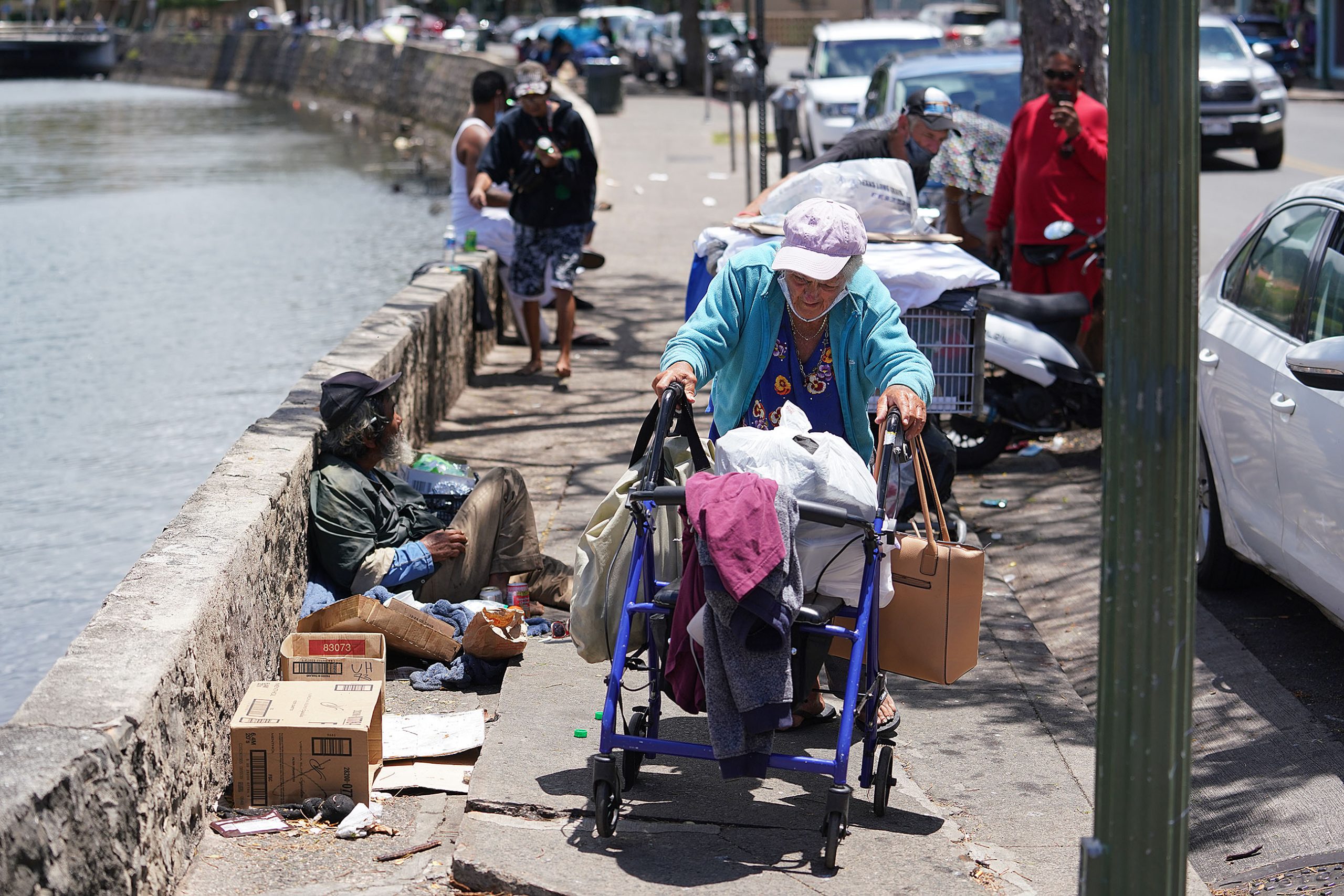Assisted outpatient treatment program would help Hawaii’s homeless
[ad_1]
My passion is to provide humanistic mental health services that treat individuals fairly, ethically and as a whole human being. Before moving to Hawaii in April, I spent the last three years working in an interdisciplinary psychiatric team providing intensive comprehensive services to people with a long history of psychiatric hospitalizations and diagnosed with severe mental illness.
To say that there is a mental health and homelessness crisis in Oahu is an understatement. All one has to do is wander nearly every major road in Honolulu to see the tents people call home, or to hear the screams coming from someone in distress.
One attempt to help manage this crisis is to promulgate ACT, Assisted Community Treatment, also known outside of Hawaii as AOT, Assisted Outpatient Treatment.
Hawaii’s ACT program mandates treatment for people with severe mental illness. These people typically have a long history of hospitalizations and / or incarceration due to non-compliance with medication or treatment, and the purpose of this program is to prevent re-institutionalization.
We could certainly debate the legitimacy and ethics of the mandated services. However, what I would like to touch on is the idea of ​​what is considered “treatment”.
“Ineffective” case management
In Hawaii, the mandatory treatment of an individual is to appoint a psychiatrist to prescribe medication and provide case management services. If a person refuses the drugs, they can be taken to hospital by the police and forced to take them.
A case manager is there to help enforce treatment and connect them with services such as outpatient therapy and claim assistance, as well as connect them with housing providers. For a homeless person with a serious mental illness like schizophrenia, putting someone on medication may calm their voices, but it does nothing against homelessness or address the complex and challenging clinical needs of severe mental illness.

The provision of case management services has also been shown to be largely ineffective in helping to resolve these issues. Of course, you can try to get a homeless person diagnosed with a psychotic disorder who resides in the same park within the past five years to travel and go to an outpatient clinic, but the likelihood that this to happen is extremely rare.
Now, if clinicians went to that same park and provided not only drug and case management services but also intensive clinical care, that would be much more efficient and a way to help manage this crisis.
If we are to see how this could be done, all we have to look at is the gold standard of mandatory treatment programs – the AOT program in New York City.
It not only requires more than 800 people with serious mental illnesses to take medication and undergo case management, but in almost all cases involves a full clinical treatment team consisting of a psychiatrist, a nurse. authorized representative, an addiction specialist, social workers and peer advocates.
This team provides medication, health services, individual and group therapy, addiction treatment, advocacy and case management. It has a low worker-to-client ratio and allows team members to meet with their clients six times per month to provide full clinical treatment wherever the client lives, including the street, homeless shelter, or home. apartment.
The New York City program is comprehensive, evidence-based and works with individuals until they are ready to leave mandated services and move to a lower level of care, such as outpatient services. and case management.
In addition, people in these programs are more likely to receive appropriate mental health housing or homeless shelter placement, whether or not they can afford it.
For some reason Hawaii does not have a program like the one described above, although it is a program that has been used around the world and is extremely effective in reducing hospitalizations and improving the results of life.
It is a shame that people with severe mental illness on these islands are not being adequately served by empirical interventions and are currently being served by programs that research shows are neither adequate nor effective for this population.
This leads to important questions: What will Hawaii’s Mandated Program actually accomplish? Is it doomed and used as yet another example of why the state should not invest in mental health services for the sick and disenfranchised?
It is a shame that people with severe mental illness on these islands are not well served.
If Hawaii is serious about doing anything to reduce the number of sick people currently living on the streets, we need real change. We need evidence-based and research-based programs; who are human, intelligent and efficient.
We need to treat these people like humans, like people with real wants, needs and wants, something that politicians and nonprofits seem to have forgotten. We can’t continue to think that the solution for this population is to criminalize and punish homelessness and then move these people out of Waikiki, to Chinatown or to the next neighborhood that won’t make any noise, until the problem magically disappears.
Neither should we adopt doomed programs that do not provide the appropriate level of treatment because that is bad service and a waste of time. Hawaii needs comprehensive services that are researched, evidence-based and proven.
Once this has been done, then an appropriate conversation about the duty to treat can take place, a conversation less about forcing individuals to take medication against their will and more about providing appropriate and adequate care.
![Civilian beat]()
Sign up for our FREE morning newsletter and be more informed every day.
[ad_2]



Comments are closed.